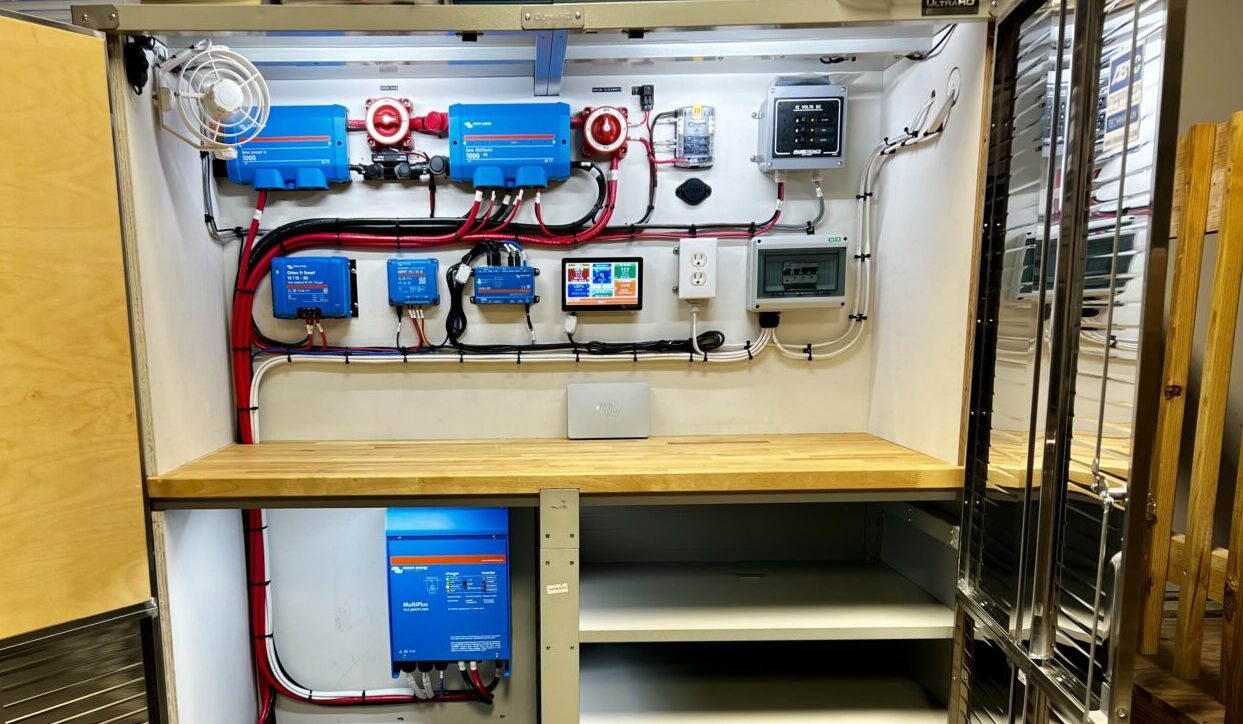
Here are some essential components of marine electrical systems and tips for ensuring their safe and effective operation.
A reliable and efficient electrical system is critical for any boat’s safe and comfortable operation. Marine electrical systems typically include various components, from batteries and charging systems to wiring, fuses, switches, and more. Before installing lithium batteries, you must ensure you have the proper components. You need to check that they offer the proper settings for your new batteries. In addition to these components, ABYC standards require a few other components for marine electrical systems to keep boaters and their electronics safe while out on the water. Here are some essential components of marine electrical systems and tips for ensuring their safe and effective operation.
Batteries and Charging Systems
Marine lithium batteries are specially designed to withstand the harsh marine environment and provide reliable power for the boat’s electrical systems. Charging systems, such as alternators and battery chargers, are also crucial for keeping the batteries charged and maintaining their optimal performance. An inverter charger is one of the main components of any lithium-powered marine electrical system. This charges the batteries and converts their DC power into AC power. Additionally, a battery monitor connects to the negative wire on your batteries and monitors all of the current that goes into and out of the battery bank.
Consulting your battery manual or the manufacturer will ensure you’re using the proper components, which will help your system work as safely and efficiently as possible.
Wiring and Electrical Panels
Proper wiring is essential for safely and efficiently operating your boat’s electrical system. Wiring should be done with a properly sized and routed marine-grade wire to avoid chafing and excessive heat buildup. Electrical panels should be clearly labeled and organized, and fuses or circuit breakers should be used to protect the system from overloads or short circuits.
Fuses and Disconnect Switches
Due to lithium batteries’ increased power, proper fuses are essential. The ABYC recommends installing a Class T Fuse within 7 inches of your battery bank to protect your system from a short.
Various disconnect switches are vital to shut down power to high current systems when unsafe operating conditions occur. Install a main battery disconnect switch to protect your boat. This large, powerful switch goes into the main conductor and can shut down the entire system if there is a problem. This switch must be rated for the maximum amperage of the circuit. Since the inverter chargers are extremely powerful, this switch can shut down power and protect your inverter from damage if a problem arises.
Marine Electric Systems, LLC is a Leader In the Maritime Industry
We here at Marine Electric Systems have over 30 years of industry experience. You can trust our team for reliable service and expert craftsmanship in the Maryland, Baltimore, Annapolis, and Baltimore city areas! We’re highly certified and adhere to all ABYC and NMEA regulations. We specialize in top-notch electrical solutions for recreational, commercial, and government boating clients. Anything from electrical refits, to navigation systems, or boating maintenance. To stay up to date on our services, follow us on Facebook, LinkedIn, Pinterest, Instagram, and YouTube. You can also contact us at 410-263-0807
